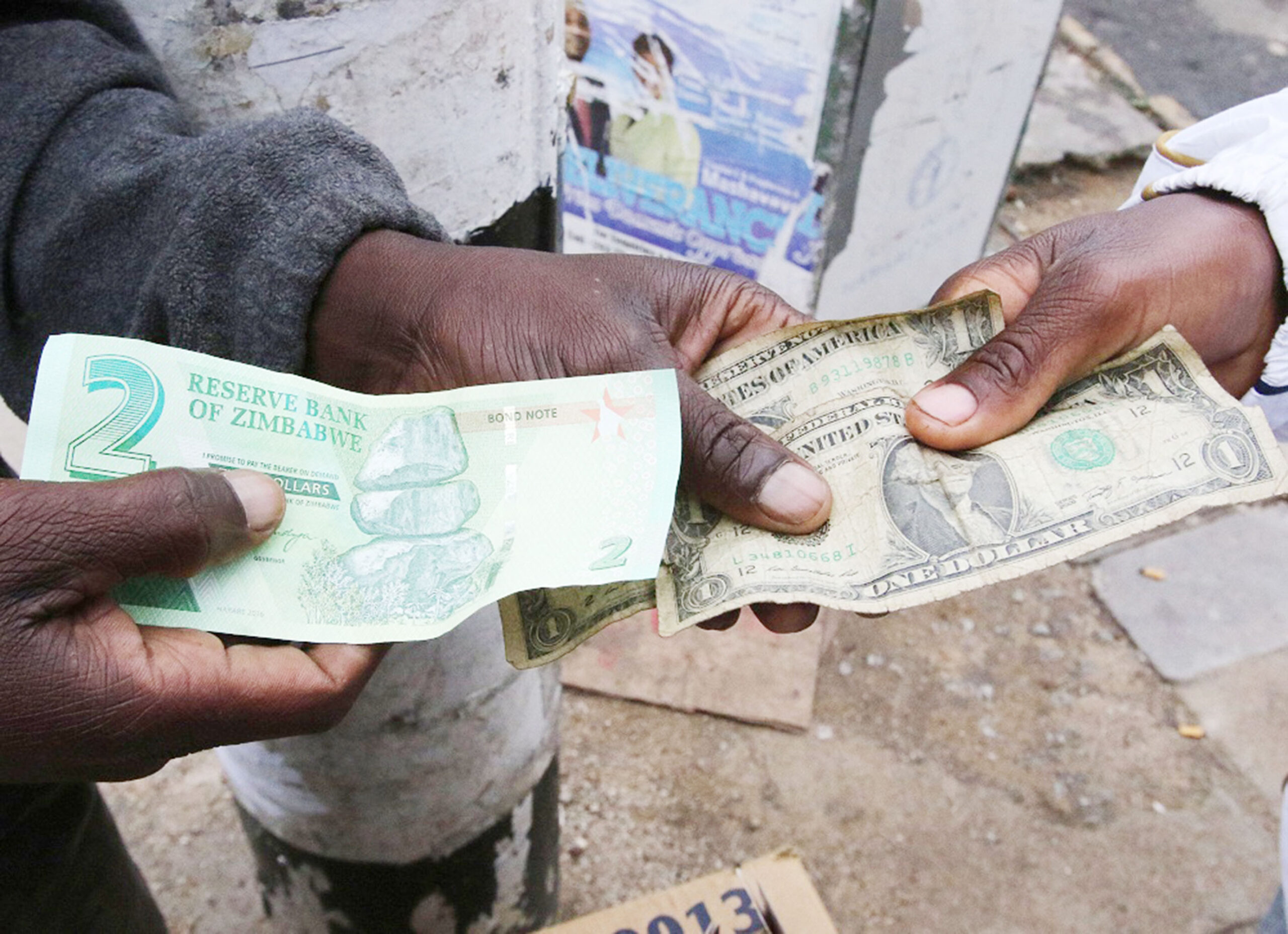‘Fiscal discipline vital in taming exchange rate volatility’
ECONOMIC commentators say fiscal discipline and addressing money supply in the economy are a vital cog authorities should embrace to address the exchange rate volatility, an albatross which the country continues to endure.
In the recent past, fiscal and monetary authorities have put in place a host of policy measures aimed at fighting instability of the exchange rate and have vowed to maintain a tight monetary policy stance as well as the implementation of austerity measures to reduce budget deficits and control public spending.
The Central Bank has also been engaged in open market operations to manage liquidity in the banking system- this involves buying and selling Government securities to influence interest rates and control money supply.
The effectiveness of such policies in sustaining stability of the exchange rate have seemingly proved to be short-lived as the rate continues on an upward spiral.
This week the interbank rate was at US$1: $6 693 against the parallel market rate of approximately US$1: $12 000.
In separate interviews, economic commentators concurred that exchange rate stability can be sustained if authorities commit to fiscal discipline and optimal money supply growth as part of measures to maintain stability of the exchange rate and the broader macro-economic stability, among others.
The Zimbabwe National Chamber of Commerce past president Trust Chikohora said: “In terms of it (war against exchange rate instability) being something that can be won, it can be won and there can also be some pain that can be endured for it to be won as well.
“Exchange rate volatility is largely driven by issues to do with money supply growth in terms of the relationship between the amount of Zimbabwe dollar in circulation in terms of broad money supply viz a vi the United States dollars available which people are willing to exchange.”
He said addressing the exchange rate volatility is also dependent on issues to do with supply of foreign currency in terms of increasing exports and production so that productivity reduces imports.
Zimbabwe has become a net importer of goods and services from around the world predominantly countries such as South Africa, Botswana, Zambia, the United Arab Emirates, Japan, China, and the United Kingdom.
This is largely on account of the production-related concerns the local manufacturing sector is reeling under due to power constraints, obsolete plant and equipment in various industrial sectors as well as shortage of foreign currency to facilitate retooling, among others.
“Also in terms of living within our means (if you want to do too many projects where the funds are not available it can affect you); the level of consumption especially Government consumption can be much higher than what they are able to afford because the biggest spender in this market is the Government.
“What the Government does affects everything and to a larger extent is what affects the exchange rate.
“These are the issues that need to be looked at especially fiscal discipline and really focus in terms of ensuring that there is stability in the economy,” said Chikohora.
He said the time frame needed to see sustained exchange rate stability is dependent on what the Government does. “If they just continue doing more of the same, you will see the same phenomenon continuing and now it’s threatening to really go wild at the moment, it’s almost getting to double what the official rate is.
“The parallel market becomes the real market if the official market is not moving in line with market realities.
“So it is within their (Government) hands to see what will happen but certainly it is possible to keep it in check on a sustainable basis if the right policies are put in place, if there is discipline, focus and willpower to go the long course.”
In a separate interview, a financial market analyst Gilbert Munetsi said as far as the exchange rate is concerned, markets cannot separate the currency from the issuer.
He said confidence in the issuer precedes confidence in the currency and one of the biggest drivers of confidence is certainty which in turn is a function of consistency.
“We need consistency in Government policy and in terms of specific policies, an obvious policy is addressing the demand and supply dynamics.
“The link between money supply growth and exchange rate movements is well documented. Fiscal discipline should be reinforced in word and in deed, this should then translate to monetary discipline.
“Treasury should match expenditure to revenues,” he said.
Munetsi added that capital projects must be funded by private investors in viable Build Operate Transfer (BOT) arrangements, as long as the terms are not outrageously generous to the investor at the expense of the public. “Funding activities like farming should be left in the hands of the private sector as well, regularisation of land tenure should help in this regard.
“These are some of the measures that can reduce demand for funding from the treasury. The Central Bank should have very tight money supply targets.
“Bank lending is another source of money creation and prudential lending should be enforced strictly,” he said, adding that stabilising the exchange rate for good is a long and painful process.
“It might take more than one election cycle. I mention the election cycle because political developments are tied to the hip with economic developments,” said Munetsi.
Economic analyst Wendy Mpofu echoed similar sentiments as Munetsi adding that to promote exchange rate stability, it was imperative for authorities to tackle various structural issues.
“Whatever policies the authorities will introduce; such interventions will go into waste in as far as achieving stability of the exchange rate is concerned. So far, there is great need to tame exchange rate volatility by addressing a number of structural issues in the economy.
“For instance, institutional weaknesses and corruption hinder economic growth and limit investor confidence,” she said.-businessweekly










